
The Covid-19 vaccine
Last year the biggest science story of the year was that scientists developed two mRNA Covid vaccines in record time. The Covid-19 vaccine has now become available for children as young as five. The fastest vaccine development-to deployment period before this was the Mumps vaccine in the 1960s and that took four years.
Only 8 percent of individuals in low-income countries have received at least one dose of the vaccine, and a WHO Africa report from this fall said that on that continent, less than 10 percent of countries would hit the goal of vaccinating at least 40 percent of their citizens by the end of the year. Globally, less than 60 percent of the population has been vaccinated. The holes in vaccination coverage will allow the virus to continue to kill a large number of individuals, and allow an environment where possibly other dangerous variants can emerge.
WHO recommends groundbreaking malaria vaccine for children
In October, the World Health Organization approved the first vaccine against malaria. The approval was not only a first for that disease, but also for any parasitic disease. The recommendation was based on results from an ongoing pilot programme in Ghana, Kenya and Malawi that has reached more than 800 000 children since 2019. WHO recommends that in the context of comprehensive malaria control the RTS,S/AS01 malaria vaccine be used for the prevention of P. falciparum malaria in children living in regions with moderate to high transmission as defined by WHO. RTS,S/AS01 malaria vaccine should be provided in a schedule of 4 doses in children from 5 months of age for the reduction of malaria disease and burden.
Bu hikaye Scientific India dergisinin January - February 2022 sayısından alınmıştır.
Start your 7-day Magzter GOLD free trial to access thousands of curated premium stories, and 9,000+ magazines and newspapers.
Already a subscriber ? Giriş Yap
Bu hikaye Scientific India dergisinin January - February 2022 sayısından alınmıştır.
Start your 7-day Magzter GOLD free trial to access thousands of curated premium stories, and 9,000+ magazines and newspapers.
Already a subscriber? Giriş Yap
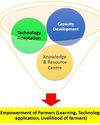
Krishi Vigyan Kendras: Working for Farmer's Welfare
Krishi Vigyan Kendras (Farm Science Centres) are the District level institution serving as an agriculture knowledge resource & capacity development centre which plays indispensable role in front line extension regarding agriculture system in scientific way.

Sixth generation Computer: The future computing technology
We are in a transition towards a digital world, where everything will be dealt with in digital format.

Massive Underground Water Reservoir Found on Mars
Scientists have discovered a reservoir of liquid water on Mars deep in the rocky outer crust of the planet.
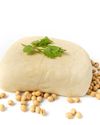
Tofu: The Budget-Friendly Superfood for Vegetarians
Tofu is a plant-based protein-rich food item that can be easily prepared at the household level with limited resources.
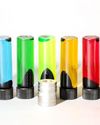
Exploring the Marvels of Carbon Quantum Dots: A Leap into the Future of Nanotechnology
In the ever-changing world of nanotechnology, carbon quantum dots (CQDs) have emerged as super tiny but incredibly powerful entities that have massive potential in various fields.
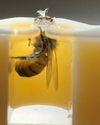
Sniffing Cancer- Honeybee, a potential cancer detector?
Imagine harnessing the super-sense of a honeybee to sniff out lung cancer.
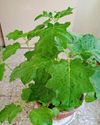
From Ancient Roots to Modern Remedies: The Timeless Value of Turkey Berry in Nature's Healing Arsena
The Timeless Value of Turkey Berry in Traditional and Modern Medicine

Massive biomolecular shifts occur in our 40s and 60s
If it's ever felt like everything in your body is breaking down at once, that might not be your imagination.

Pectin: An Esteemed Plant-Derived Molecule in the Food Industry
This article provides a concise overview of the significance of pectin, a plant-derived molecule, in the food industry.

Skip the Antibacterial Soap: Use Plain Soap and Water
When you buy soaps and body washes, do you reach for products labeled \"antibacterial\" hoping they'll keep your family safer? Do you think those products will lower your risk of getting sick, spreading germs or being infected? According to the U.S.